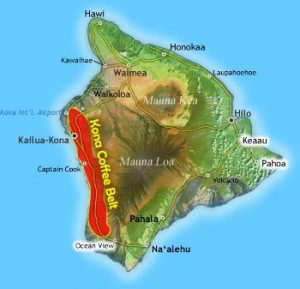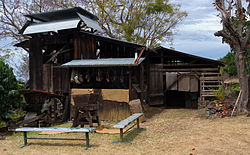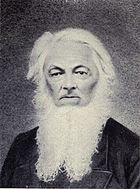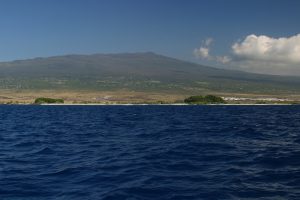In recent years, there has been a notable shift in the way Kona coffee is bought, sold, and enjoyed. As consumers become increasingly conscious of the origins and quality of their coffee beans, a growing number of coffee producers in the Kona region are embracing direct trade practices as a way to connect with consumers, promote transparency, and ensure fair compensation for their hard work. In this post, we’ll explore the rise of direct trade in the Kona coffee industry, examining its impact on farmers, consumers, and the broader coffee community.
Understanding Direct Trade

Direct trade is a sourcing model that bypasses traditional coffee brokers and intermediaries, allowing coffee producers to sell their beans directly to roasters, retailers, and consumers. By establishing direct relationships with buyers, farmers can negotiate fair prices, establish quality standards, and receive feedback on their products, creating a more transparent and equitable supply chain from farm to cup.
Benefits for Farmers

For Kona coffee farmers, direct trade offers a host of benefits, including higher prices for their beans, greater control over the selling process, and increased recognition for their hard work and dedication. By cutting out the middlemen and selling directly to consumers, farmers can earn a greater share of the retail price of their coffee, enabling them to reinvest in their farms, improve working conditions, and support their families and communities.
Quality and Transparency

Direct trade promotes greater transparency and accountability in the coffee industry, allowing consumers to trace the journey of their coffee beans from the farm to their cup. With direct trade, farmers can share information about their farming practices, processing methods, and environmental stewardship efforts, giving consumers confidence in the quality and integrity of their coffee. Additionally, direct trade fosters direct communication between farmers and consumers, enabling them to exchange feedback and build meaningful relationships based on trust and mutual respect.
Supporting Sustainable Practices

Direct trade encourages coffee producers to adopt sustainable and environmentally-friendly farming practices that promote soil health, biodiversity, and long-term resilience. By investing in sustainable agriculture, farmers can protect the natural resources and ecosystems that sustain their livelihoods, while also preserving the unique terroir and flavor profile of Kona coffee for future generations to enjoy.
Empowering Consumers

Perhaps most importantly, direct trade empowers consumers to make informed choices about the coffee they buy and the impact it has on the lives of farmers and communities. By supporting direct trade coffee, consumers can vote with their dollars for ethical and sustainable business practices, while also enjoying the rich, complex flavors and aromas of high-quality Kona coffee.
The rise of direct trade in the Kona coffee industry represents a transformative shift towards greater transparency, equity, and sustainability in the way coffee is bought, sold, and enjoyed. By fostering direct relationships between farmers and consumers, direct trade creates a more transparent and equitable supply chain that benefits everyone involved, from the farmers who grow the beans to the consumers who savor them in their morning cup. So the next time you enjoy a sip of Kona coffee, remember the impact of direct trade and the role you play in supporting ethical and sustainable coffee production.





 Kona coffee is renowned for its exceptional quality and rich flavor, but behind every cup of this beloved Hawaiian brew lies a delicate balance between tradition and environmental responsibility. As stewards of the land, Kona coffee farmers have long embraced sustainable farming practices that protect the unique ecosystem of Hawaii’s Big Island while ensuring the long-term viability of their crops. In this post, we’ll explore the principles of sustainability that guide the Kona coffee industry, highlighting the ways in which farmers are balancing tradition with environmental responsibility to preserve the legacy of Kona coffee for generations to come.
Kona coffee is renowned for its exceptional quality and rich flavor, but behind every cup of this beloved Hawaiian brew lies a delicate balance between tradition and environmental responsibility. As stewards of the land, Kona coffee farmers have long embraced sustainable farming practices that protect the unique ecosystem of Hawaii’s Big Island while ensuring the long-term viability of their crops. In this post, we’ll explore the principles of sustainability that guide the Kona coffee industry, highlighting the ways in which farmers are balancing tradition with environmental responsibility to preserve the legacy of Kona coffee for generations to come.




 Kona is the perfect coffee growing environment in the United States and arguably, in the world. Kona combines the exacting combination of sun, soil, shade and water that coffee trees thrive in.
Kona is the perfect coffee growing environment in the United States and arguably, in the world. Kona combines the exacting combination of sun, soil, shade and water that coffee trees thrive in.

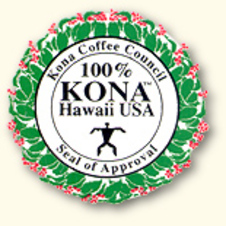 The Kona Coffee Council is an organization of Hawai’i farmers, processors and retailers who grow, process and sell the World’s Best coffee! In this case over 175 years of development. Particularly to legally be labeled Kona, the coffee beans must be grown only in the North or South Kona districts. Located on the west side of Hawai’i Island (the Big Island). These heritage trees thrive in the
The Kona Coffee Council is an organization of Hawai’i farmers, processors and retailers who grow, process and sell the World’s Best coffee! In this case over 175 years of development. Particularly to legally be labeled Kona, the coffee beans must be grown only in the North or South Kona districts. Located on the west side of Hawai’i Island (the Big Island). These heritage trees thrive in the 
